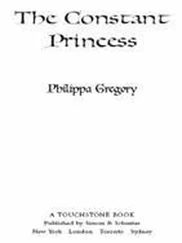“You were brought in as a Protestant princess,” he says. “And the man who brought you in paid with his life. I am fearful.”
“What can we do?” I ask.
“I shall keep watch on the king,” he says. “While he acts against the Papists we are safe enough, but if he turns against the reformers, we should make sure that we can get home, if we need to.”
I give a little shudder, thinking of the mad tyranny of my brother as opposed to the mad tyranny of this king. “I have no home there.”
“You may have no home here.”
“The king has promised me my safety,” I say.
“He promised you the throne,” the ambassador says wryly. “And who sits there now?”
“I don’t envy her.” I am thinking of her husband brooding on his wrongs, trapped in his bed by his suppurating wound, counting his enemies and allocating blame, while his fever burns and his sense of injustice grows more mad.
“I should think no woman in the world would envy her,” the ambassador replies.
Jane Boleyn, Hampton Court,
April 1541
“What actually happened to Anne Boleyn?” the child queen horrifies me by asking as we walk back from Mass early one morning in April. The king was, as usual, absent from the royal box, and for once she was not peering over the edge of the box to see Culpepper. She even closed her eyes during the prayers as if praying, and she seemed thoughtful. Now this.
“She was accused of treason,” I say coolly. “Surely, you know that?”
“Yes, but why? Exactly why? What happened?”
“You should ask your grandmother, or the duke,” I say.
“Weren’t you there?”
Was I not there? Was I not there for every agonizing second of it all? “Yes, I was at court,” I say.
“Don’t you remember?”
As if it were engraved on my skin with a knife. “Oh, I remember. But I don’t like to talk of it. Why would you seek to know of the past? It means nothing now.”
“But it’s not as if it were a secret,” she presses me. “There is nothing to be ashamed of, is there?”
I swallow on a dry throat. “No, nothing. But it cost me my sister-in-law and my husband and our good name.”
“Why did they execute your husband?”
“He was accused of treason with her, and the other men.”
“I thought that the other men were accused of adultery?”
“It’s the same thing,” I say tersely. “If the queen takes a lover, that is treason to the king. D’you see? Now can we speak of something else?”
“Then why did they execute her brother, your husband?”
I grit my teeth. “They were accused of being lovers,” I say grimly. “Now do you see why I don’t want to speak of it? Why no one wants to speak of it? So can we say no more of it?”
She does not even hear my tone, she is so shocked. “They accused her of taking her brother as a lover?” she demanded. “How could they think she would do such a thing? How could they have evidence of such a thing?”
“Spies and liars,” I say bitterly. “Be warned. Don’t trust those stupid girls you have gathered round you.”
“Who accused them?” she asks, still puzzled. “Who could give such evidence?”
“I don’t know,” I say. I am desperate to get away from her, from her determined hunt after these old truths. “It is too long ago, and I cannot remember, and if I could, I would not discuss it.”
I stride away from her, ignoring royal protocol. I cannot stand the dawning suspicion in her face. “Who could know?” she repeats. But I have gone.
Katherine, Hampton Court,
April 1541
I am much reassured by all that I am learning, and I wish I had thought to ask before. I had always believed that my cousin Queen Anne had been caught with a lover and beheaded for that. Now I find that it was far more complicated than that; she was at the center of a treasonous plot, too long ago for me to understand. I was afraid in case she and I were treading the same road to the same destination; I was afraid that I had inherited her wickedness. But it turns out that there was a great plot, and even my lady Rochford and her husband were tied up in it somehow. It will have been about religion, I daresay, for Anne was a furious Sacramentary, I think, whereas now everyone with any sense is for the old ways. So I think as long as I am very clever and very discreet that I can at least be friends with Thomas Culpepper. I can see him often; he can be my companion and my comforter, and nobody need know or think anything of it. And while he is a loyal servant of the king and I am a good wife, then no harm will be done.
Cleverly, I call my cousin Catherine Carey to my side and tell her to sort embroidery silks into shades of color for me, as if I am about to start sewing. If she had been longer at court, she would know at once that this is a ruse since I have not touched a needle since I became queen, but she brings a stool and sits at my feet and puts one pink silk beside another, and we look at them together.
“Has your mother ever told you what happened to her sister, Queen Anne?” I ask quietly.
She looks up at me. She has hazel eyes, not as dark as the Boleyn shade. “Oh, I was there,” she says simply.
“You were there!” I exclaim. “But I didn’t know anything about it!”
She smiles. “You were in the country, weren’t you? We are about the same age. But I was a child at court. My mother was lady-in-waiting to her sister Anne Boleyn, and I was maid-in-waiting.”
“So what happened?” I am almost choking with curiosity. “Lady Rochford will never tell me a thing! And she gets so cross when I ask.”
“It is a bad story and not worth the telling,” she says.
“Not you as well! I will be told, Catherine. She is my aunt, too, you know. I have a right to know.”
“Oh, I’ll tell you. But it still won’t make it a good story. The queen was accused of adultery with her own brother, my uncle.” Catherine speaks quietly, as if it is an everyday event. “Also with other men. She was found guilty; he was found guilty; the men were found guilty. The queen and her brother George were both sentenced to death. I went into the Tower with her. I was her maid in the Tower. I was with her when they came for her and she went out to die.”
I look at this girl, this cousin of mine, my own age, my own family. “You were in the Tower?” I whisper.
She nods. “As soon as it was over my stepfather came and took me away. My mother swore we would never go back to court.” She smiles and shrugs. “But here I am,” she says cheerfully. “As my stepfather says: where else can a girl go?”
“You were in the Tower?” I cannot get rid of the thought of it.
“I heard them build her scaffold,” she says seriously. “I prayed with her. I saw her go out for the last time. It was terrible. It was truly terrible. I don’t like to think of it, even now.” She turns her face away and briefly closes her eyes. “It was terrible,” she repeats. “It is a terrible death to die.”
“She was guilty of treason,” I whisper.
“She was found guilty by the king’s court of treason,” she corrects me, but I don’t quite see the difference.
“So she was guilty.”
She looks at me again. “Well, anyway, it is a long time ago, and whether she was guilty or not, she was executed at the king’s command, and she died in her faith, and she is dead now.”
“Then she must have been guilty of treason. The king would not execute an innocent woman.”
She bows her head to hide her face. “As you say, the king is not capable of making a mistake.”
“Do you think she was innocent?” I whisper.
“I know she was not a witch; I know she was not guilty of treason; I am sure she was innocent of adultery with all those men,” she says firmly. “But I do not argue with the king. His Grace must know best.”
Читать дальше
Конец ознакомительного отрывка
Купить книгу












